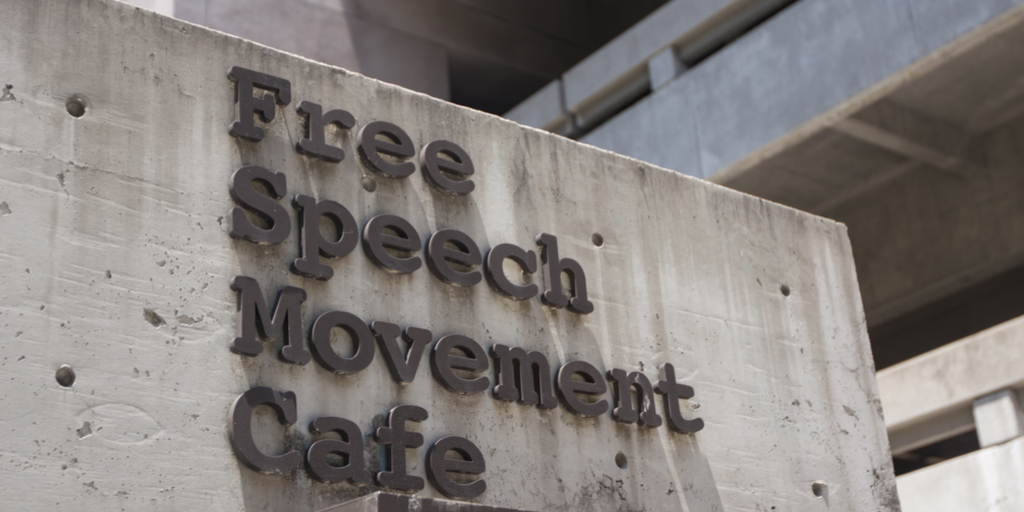The reaction to Elon Musk's vision of a more open Twitter reveals the decline of free expression as a cultural value.
Censoring "Error," Destroying Free Speech
A typical defence of the freedom of speech focuses on the centrality of the free exchange of ideas to the pursuit and acquisition of truth. We need other people to tell us when we are wrong by criticizing our ideas, since the quest for truth is a self-correcting process based on learning from trial and the gradual elimination of error, a process of collective discovery based on the recognition of individual fallibility—something which is impossible when there is no freedom of expression. Intolerance and silencing of unorthodox perspectives often lead to the loss of the opportunity to get rid of incorrect ideas—as great innovators like Galileo Galilei, Giordano Bruno, Ignaz Semmelweis, and a myriad of others demonstrate.
These are just several of the many ways in which free and open intellectual inquiry contributes to the understanding of reality. But what is often ignored is the role of free expression in preventing our definition of truth from shifting in the wrong direction. Protection of the right of even the most radical, pseudoscientific, and irrational ideas to be heard is necessary to prevent the distortion of truth. Since, by definition, there can be no truth without error, when we restrict the freedom of speech and outlaw opinions that the majority perceives as being utterly wrong, we ultimately lose, as John Stuart Mill put it in On Liberty, “what is almost as great a benefit, the clearer perception and livelier impression of truth, produced by its collision with error.”
Cognition comes through comparison. We can fully understand the properties of a subject only when comparing and contrasting it with its opposite. Comparison is essential to the proper understanding of reality. We can never know what is good without knowing what is bad, light without darkness, virtue without vice, truth without falsehood, order without chaos, happiness without misery, pleasure without suffering. As Aleksandr Solzhenitsyn wrote in The Gulag Archipelago, “the line dividing good and evil cuts through the heart of every human being,” and we are innately capable of experiencing both.
Consider Aldous Huxley’s Brave New World, in which people live in the state of “happy ignorance”: “they get what they want, and they never want what they can’t get.” Their happiness is superficial and infantile, a product of psychological conditioning and pleasure-enhancing drug “soma.” In Brave New World, people do not experience true happiness because they do not experience either strong passions or terrible grief; order and perpetual pleasure without uncertainty have turned them into little more than biological machines. Life in Brave New World lacks vitality and tension of spirit resulting from the complementary nature of happiness and unhappiness.
The inability to comprehend the truth without contrasting it with evil brings us to the following phenomenon. Western society embarked on the quest to eliminate misery and suffering in the world. As a result, each remaining evil looms larger in our minds. This is due to our inborn propensity to divide the world into dualist black-and-white categories, good and evil. Because of this lack of historical perspective when it comes to progress, we often overestimate and overreact to remaining problems while ignoring others.
Consider the issue of inequality and poverty. Since 1979, the poorest 20% of Americans have witnessed an 80% increase in their incomes, while the share of households with income over $100,000 rose from just 8% half a century ago to almost 30% in 2017. As poverty declined, it has become sidelined as an issue and citizens’ attention has shifted towards economic inequality: 61 percent of Americans agree that there is too much economic inequality in the US, for example.
There is a widespread opinion, especially among self-described progressives, that by suppressing radical, irrational, and pseudoscientific views, we will get a better political discourse, one more reasoned, rational, and balanced. However, this is not the case. When ideas that seem unacceptable are stamped out, this narrowing of the range of “politically correct” opinions sets us on a path toward gradual winnowing of hitherto admissible beliefs. What has not previously been considered as an extreme opinion becomes so. Purging of radical perspectives shifts our perception of what is right and what is wrong; the truth is not as valued and is not as clear and apparent as when it is contrasted with error.
Any restriction on the freedom of speech and exclusion of what are perceived as “radical” opinions, is, therefore, prone to shift the definition of what is an “acceptable” opinion. This explains why, all across the United States (especially in academia), people are proclaiming that America has systemic racism and activists are toppling monuments of historical figures like Ulysses Grant because of their supposed connections to slavery or racism—ignoring that moral values are dynamic and change over time. Erasure of history from public memory, removal of unpleasant references, distorts our understanding of what is right and wrong—as the return of racial segregation and race preferential admission policies at some universities demonstrate.
There is a widespread opinion, especially among self-described progressives, that by suppressing radical, irrational, and pseudoscientific views, we will get a better political discourse, one more reasoned, rational, and balanced.
Undoubtedly, racism is still prevalent today—when it comes to domestic police surveillance, for example— and it is a serious problem that needs to be resolved, but contemporary racism is incomparable to the racism in America before the Civil Rights Era. Yet progressive activists continue to insist that we live in a systemically racist society—ironically, such an attitude implies that all attempts at progress, past, present and future, fails to advance the cause of progressivism at all. Fixation on remaining injustices, although it impels us to overcome them, ignores how far we have come. When we perceive our society as a den of iniquity, appetite for revolutionary rather than incremental change increases.
Freedom of speech is for all facts, however unpleasant they may be to some people. For the lack of the exposure to different perspectives, even the most radical and wrong ones, makes us blind to reality. The mainstream media’s failure to anticipate the outcome of the 2016 election is a testament to its detachment from the lives of most Americans. As the New York Times columnist David Brooks has remarked, intellectual segregation from opposing viewpoints “produced insularity. Progressives are often blindsided by reality—blindsided that Trump won the presidency; blindsided that Joe Biden clinched the Democratic presidential nomination.”
Importantly, open intellectual inquiry and an unrestricted marketplace of ideas are also the best means of getting rid of bad ideas. The best ideas win out, while irrational ideas eventually die, thereby promoting the spread of truth—a process of collective discovery that is based on the recognition of individual fallibility. However, the imposition of restrictions on the market of ideas—which is what Social Justice proponents advocate—is liable to support rather than overcome seemingly irrational perspectives. As John Stuart Mill put it in On Liberty, when some opinions are suppressed and there is “never any fair and thorough discussion of heretical opinions … such of them as could not stand such a discussion, though they may be prevented from spreading, do not disappear.” Attempts to prohibit something usually make it even more popular. Similarly, suppression of certain ideas is likely to attract more attention to them, artificially inflating their popularity and helping them find new followers. Lack of free competition in the ideas market thus prevents bad ideas from dying off quickly.
Problems are inevitable but they are also solvable. Achieving progress and recognizing objective truth in politics remains possible, even though this might not seem so in the short term. Open societies are fundamentally truth-seeking systems that, in the long run, achieve consensus over what is right and what is wrong and thereby converge on objective truths. What is taken today for granted, would have been a highly contentious issue not so long time ago, such as the right of women to vote.
Human fallibility implies that we can never have a perfect world, and it would be dangerous to seek one, for we will never possess complete knowledge of reality. There will always be injustice, unfairness, and problems in a free and open society—otherwise we would lose a source of meaning and what makes our society dynamic and vibrant. Only by considering our past progress can we rationally approach our current problems. For as the philosopher of science Karl Popper wrote, “much that is wrong [with Western society] is due to its ruling religion … belief that the social world we live in is a kind of hell.”



